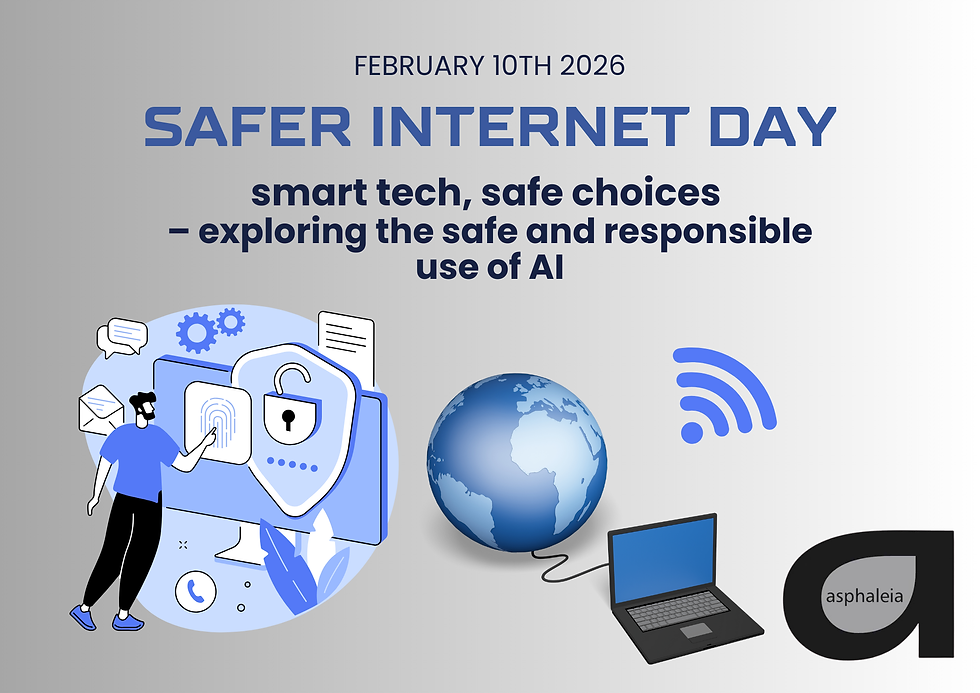online safety tips for young people, parents and carers
- Apr 7, 2020
- 2 min read
Updated: Apr 29, 2024
Previously we may have claimed that technology was keeping us apart as people were spending their time at home messaging on online platforms instead of meeting in person but now, technology is bringing us together. It is allowing us to share photos, use video calling, and generally keep up to date with each other's lives via Facebook, Instagram and Twitter and also other newly prominent apps like House Party.
You may have already received information from your school or college or your child's school about the risks that come from more online activity for young people and we wanted to give some basic online safety tips for helping you or your young person or children stay safe online.
1. Get informed
Google has a great resource called Be Internet Awesome. It has a game that children can play that educates them about online safety. It also has many articles and resources for young people (for example, how to prevent yourself being a victim of identity theft), parents and also educators, including how to clean up your online footprint. The Safer Internet Centre also has lots of advice and resources.
2. Talk about it
If you're a young person and you're not sure about internet safety or you have concerns, ask a trusted adult for advice. It you're a parent, reach out to your child's school, or contact the Internet Safety Centre for support, but most importantly, talk to your child or young person about it. If it becomes a topic that is talked about often at home it is more likely they will develop an awareness and cautious attitude. Also, they are more likely to tell you if anything worrying or upsetting occurs.

3. Check the privacy and internet safety settings on your/your child or young person's devices
Lots of devices for children will allow for parent settings where you can restrict internet use, playing games with other users online, and it will only show age appropriate apps. Also, many devices will have a guided viewing setting, which allows you to lock the device so it stays within the current app. This means if a child is using your device and playing an age-appropriate game they can't leave it and roam around your device. Search online for advice about your particular device and how you can make it more safe. Sit with your young person and do this with them on their device. Explain why choosing certain privacy settings on social media and apps helps keep them and their data safe.
If you are a young person using any of our services or a parent/guardian of one, please feel free to contact us today if you would like any advice or support with internet safety.







